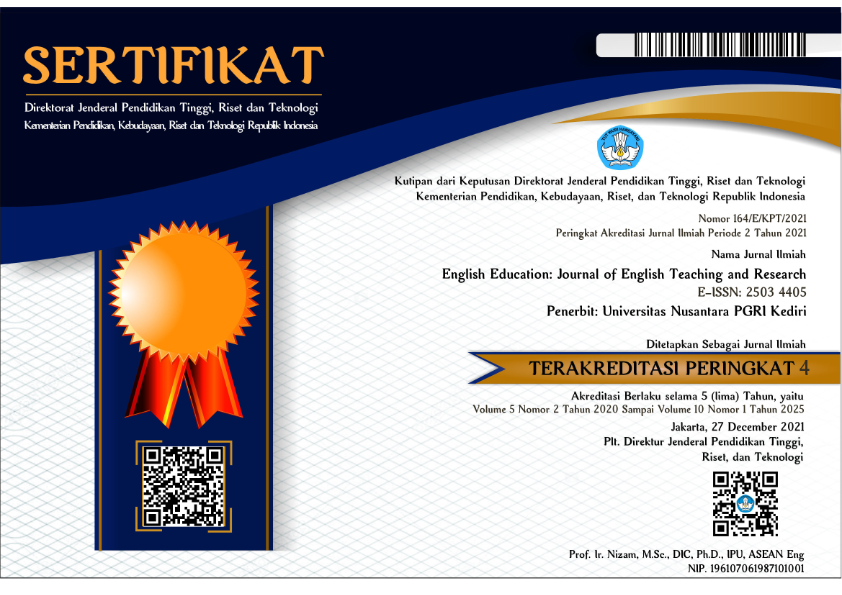THE IMPLEMENTATION OF PAIR WORK TO IMPROVE STUDENTS’ ENGLISH SPEAKING TO THE SECOND SEMESTER AT PHARMACIST PROGRAM OF HEALTH SCIENCES FACULTY OF KADIRI UNIVERSITY
DOI:
https://doi.org/10.29407/jetar.v2i1.733Abstract
It is generally know that the English speaking ability of Pharmacist Program ‘students is still low. They still cannot speak English well as communication. The aims of this research are (1) To identify whether pair work can improve students’ English speaking and (2) To discribe the process of applying pair work in teaching speaking. The procedures of the research consist of planning, acting, observing, and reflecting. To collect the data some instruments namely: questionnaire, classroom observation, tests, and documentation or field notes are used. The observation was done during the teaching-learning process in progress. The questionnaire were given to the students before and after the implementation of pair work. The tests were in the form of pre-test and post-test. The result of the research shows that (1) pair works could improve students’ speaking ability in term of raising students’ achievement in the case of (a) fluency, (b)Vocabulary, (c) pronunciation ,(d) grammar and(e) content (2) pair works can improve class situation, in term of (a) students’ interaction when having and responding teacher’s questions, (b) being active in pair work activities, (c) being more attentive to the speaking class, (d) and the absence of students who were late and went out during speaking class, and (e) the unobservable dominancy of the teacher, it can be concluded that students’ speaking could be improved by the implementation of pair work.
Downloads
Downloads
Published
Issue
Section
License
Authors who publish with this journal agree to the following terms:
- Copyright on any article is retained by the author(s).
- The author grants the journal, the right of first publication with the work simultaneously licensed under a Creative Commons Attribution License that allows others to share the work with an acknowledgment of the work’s authorship and initial publication in this journal.
- Authors are able to enter into separate, additional contractual arrangements for the non-exclusive distribution of the journal’s published version of the work (e.g., post it to an institutional repository or publish it in a book), with an acknowledgment of its initial publication in this journal.
- Authors are permitted and encouraged to post their work online (e.g., in institutional repositories or on their website) prior to and during the submission process, as it can lead to productive exchanges, as well as earlier and greater citation of published work.
- The article and any associated published material is distributed under the Creative Commons Attribution-ShareAlike 4.0 International License








 Article template
Article template



